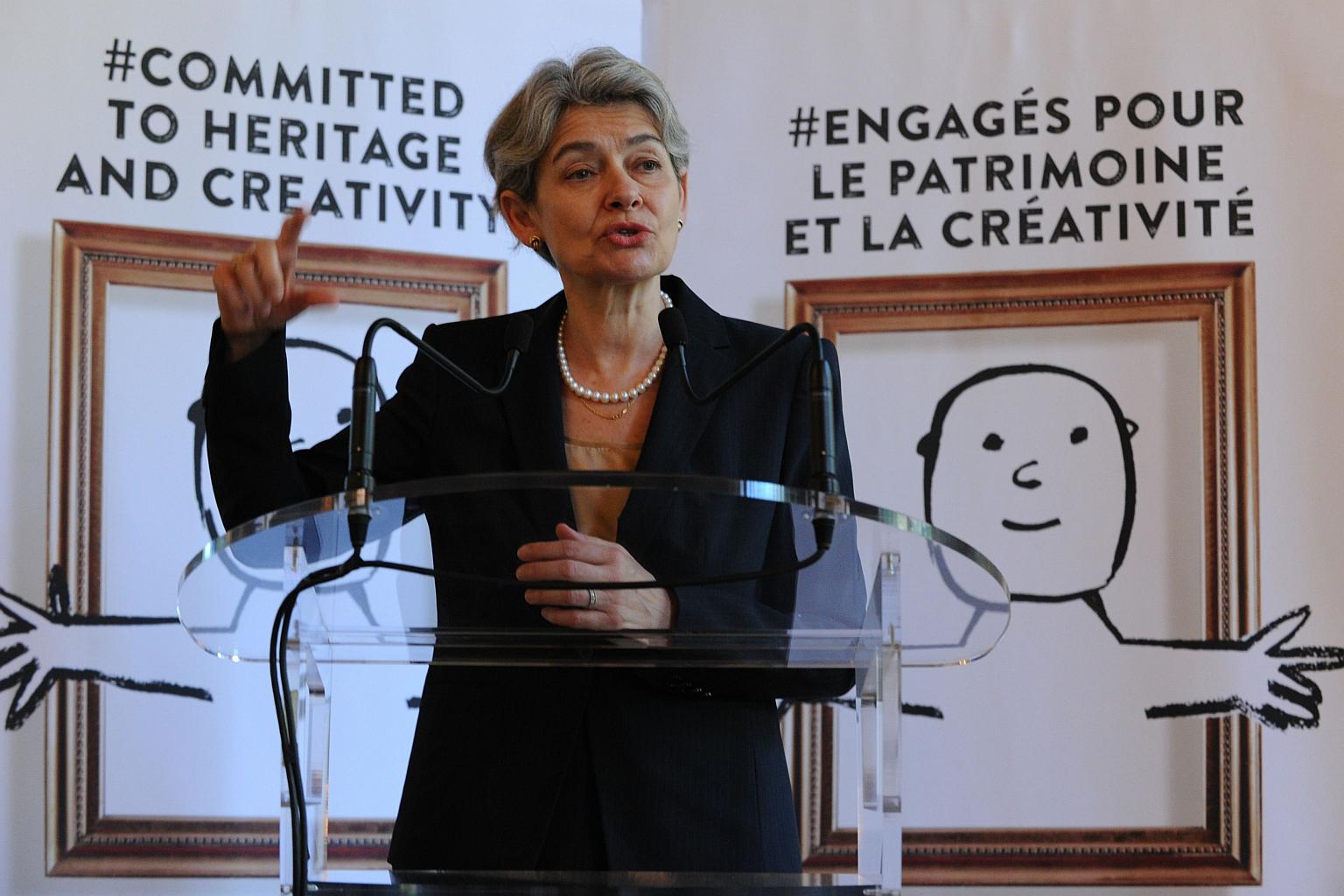Islamic State looting Syrian, Iraqi sites on industrial scale: Unesco
Sign up now: Get ST's newsletters delivered to your inbox

Unesco Director General Irina Bokova talks during a press conference in Paris on June 23, 2015.
PHOTO: AFP
LONDON (REUTERS, AFP) - Islamic State in Iraq and Syria (ISIS) militants are looting ancient sites across Iraq and Syria on an industrial scale and selling on treasures to middlemen to raise cash, Irina Bokova, the head of the UN cultural agency Unesco said on Thursday.
One fifth of Iraq's about 10,000 official world-renowned sites were under Islamic State control and heavily looted, and it was unclear what was happening in "thousands more" areas, Bokova told a meeting of experts in London.
Some sites in Syria had been ransacked so badly they no longer had any value for historians and archaeologists, and Unesco was also increasingly worried about Libya, she said.
Separately, a famous statue of a lion outside the museum in the Syrian city of Palmyra has been destroyed by ISIS, the country's antiquities director said Thursday.
Maamoun Abdelkarim said the statue, known as the Lion of Al-Lat, was an irreplacable piece and was apparently destroyed last week.
"ISIS members on Saturday destroyed the Lion of al-Lat, which is a unique piece that is 3m tall and weight 15 tonnes," Abdelkarim told AFP.
"It's the most serious crime they have committed against Palmyra's heritage," he said.
The limestone statue was discovered in 1977 by a Polish archeological mission at the temple of Al-Lat, a pre-Islamic Arabian goddess, and dated back to the 1st century BC.
Abdelkarim said the statue had been covered with a metal plate and sandbags to protect it from fighting "but we never imagined that ISIS would come to the town to destroy it."
ISIS captured Palmyra, a renowned Unesco World Heritage site, from government forces on May 21, prompting international concerns about the fate of the city's antiquities.
So far, the city's most famous sites have been left intact, though there are reports ISIS has mined them.
Islamic State's self-declared caliphate contains some of the richest archaeological treasures on earth in a region where ancient Assyrian empires built their capitals, Graeco-Roman civilisation flourished, and Muslim and Christian sects co-existed for centuries.
The militants, whose strict Salafi interpretation of Islam deems the veneration of tombs and non-Islamic vestiges to be idolatrous, have also posted videos of themselves destroying artefacts.
"The deliberate destruction, what we are seeing nowadays in Iraq and Syria, has reached unprecedented levels in contemporary history," Bokova told the Royal United Services Institute (RUSI) in London.
"This deliberate destruction is not only continuing, it is happening on a systematic basis. The looting of archaeological sites and museums, in Iraq particularly, has reached an industrial scale of destruction."
Such "cultural cleansing" was aimed at destroying humanity's common roots, she said, but was also a source of financing for militants who she said were charging local farmers to excavate sites and smuggling out artefacts which eventually made their way to private collectors around the world.
"Daesh (ISIS) knows there's a financial upside of this activity and they are trying to gain from it. We know also that parties in the conflict are selling to certain dealers and to private collectors and to market end buyers."
Satellite images helped Unesco understand what was going on, she said, but in some areas there were just hundreds of holes in the ground from which artefacts were being extracted and it was difficult to understand what was being looted.


